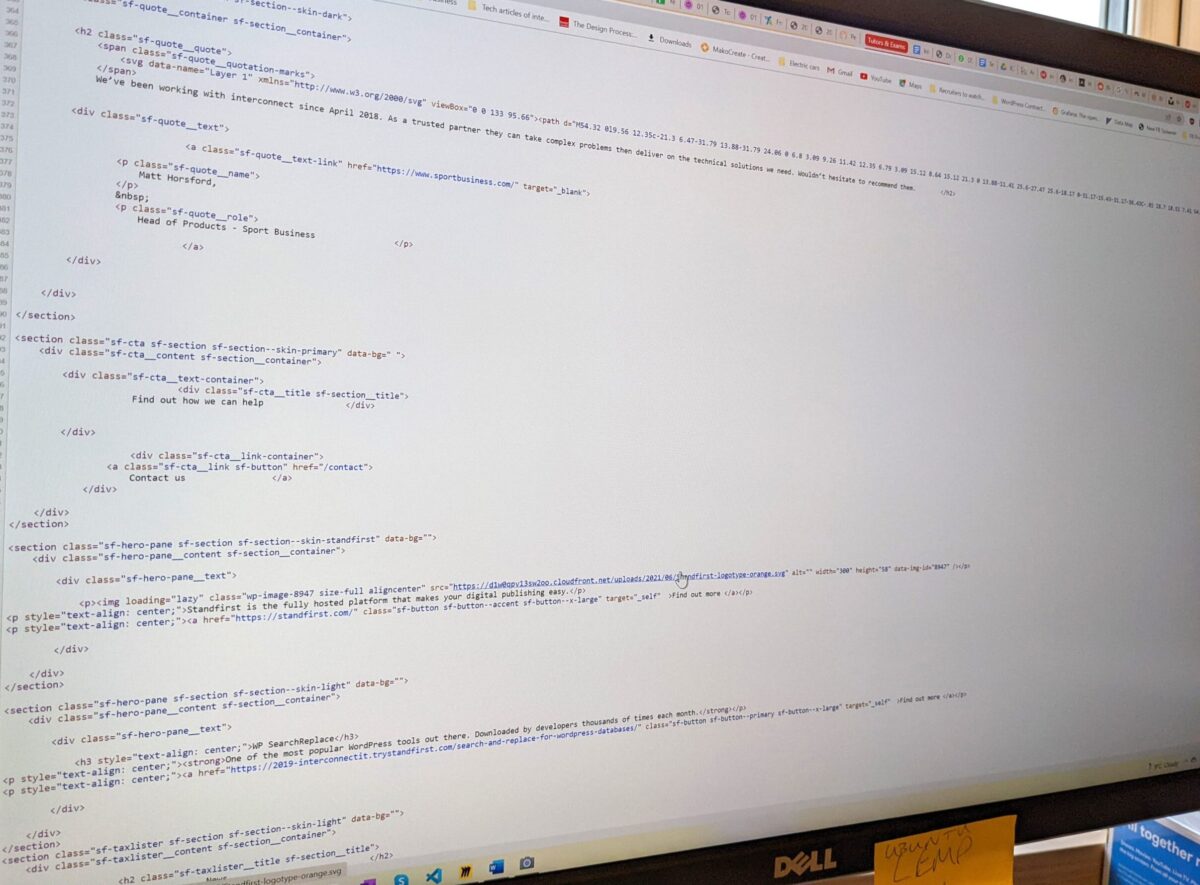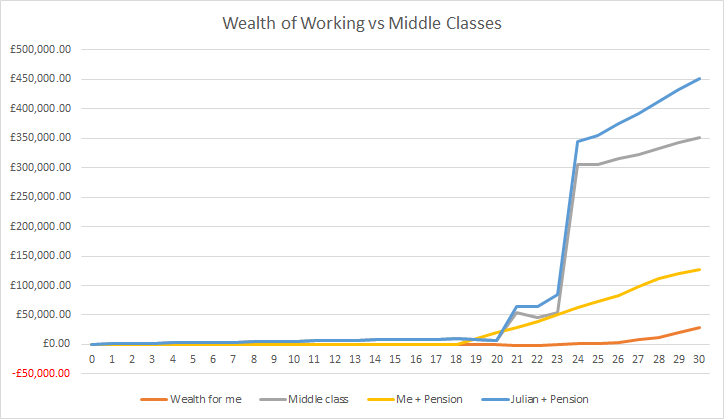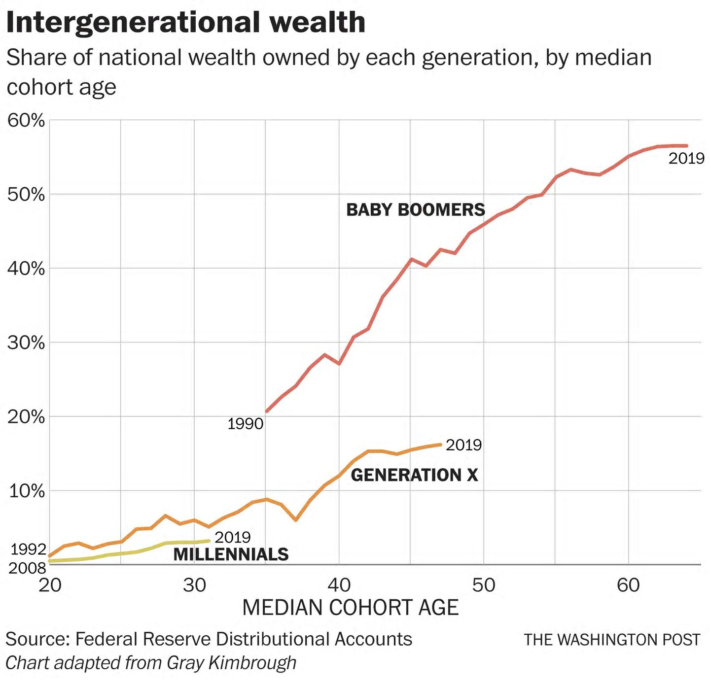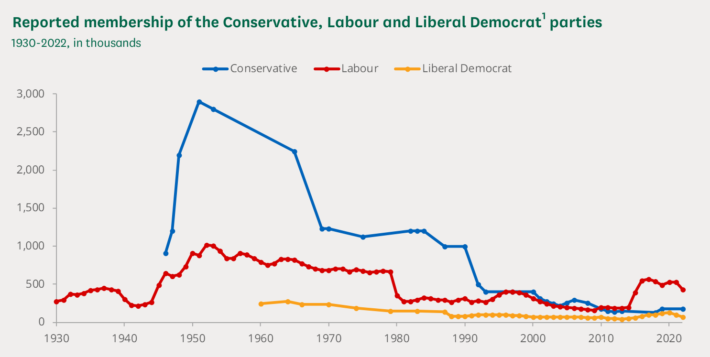When I was 18 I found myself in a weird situation. October 1987. I’d just started my first job, straight from 6th form, and was happy with that. My favourite song the year before had been The Future’s So Bright, I Gotta Wear Shades. I was optimistic and hopefull. I’d done my A levels finally surrounded by people who actually cared about education. I was no star pupil at 6th form, except at computers, but computers were the big thing so I had confidence.
All good then. I mean it wasn’t perfect, but I just had a fresh optimism. I’d lived with my grandmother since I was about 12 (my childhood memories are imperfect and I have few witnesses to refer to. I’d been casually fostered for a number of years prior, was fed up, and had been dumped with her. She was one of the few consistent things in my life and could see I was breaking in front of her. So I in effect ‘divorced’ my father and she took custody of me. She lived in a mobile home type caravan at the time. She was poor, but stability mattered more to me. I got my education. The future felt very bright.
I got through the various stages of ICI (then one of the largest chemical firms around) to get a job in their computer centre as a trainee printer operator, with the idea being to climb into a programming job. Unfortunately, a few weeks later, my grandmother had been in a lot of pain and, within a day of being admitted to hospital (this is another story to tell) where we discovered she had terminal cancer. Very terminal. She had less than a week left.
I was so very alone. My father turned up, signed over to me to handle everything, then disappeared to South America, never to be seen again. In 1986, my mother who I had some mild relationship with, had taken her family to Spain and, for some reason, me being told and having a goodbye seemed to be forgotten… so I’d accepted they weren’t a factor in my life. That was it. Me, alone, in the world.
Things got quite bad, quite quickly. Here’s what I learned, what I did wrong, and what I think I did right.
The world is not your friend
When you grow up, generally there are adults who look after your interests and needs, until you’re old enough to do it for yourself. But often you feel this interconnectedness with everything being generally good. Often in adulthood we discover things can be quite different – especially if we have some failures. I think learning that the world isn’t your friend is important. I discovered, for example, that if you have no cash, you can’t just take over a substantial asset (a house, in this case) and expect to not pay off debts that your grandmother had. The answer should be simple – I could have borrowed from another bank or building society to buy the house off my grandmother’s estate. Except her bank refused unless my grandmother’s estate was up to date on the mortgage payments. And because my grandmother’s estate had debts and no income, it couldn’t make the mortgage payments, and I was advised that if I paid the mortgage it would potentially make me liable for everything. When you’re an eighteen year old that leaves you in a bind.
The bank took the house, and I was made homeless, briefly (I kept a spare key and let myself in at night to sleep on the floor!), and I quickly organised myself and bought a tiny flat. Good job, because the council wouldn’t help me, the bank wouldn’t help, renting privately was almost impossible for me. Thank heavens I was organised and found the right combination of people.
Finance is risky and can be expensive
Because I was young with little credit history, all finance was risky. I figured that with my job and my flat I could now live a little and went stupid, bought myself a small engined sports car – a Scimitar SS1 1300 if you’re a car geek – a tumble dryer and washing machine all on credit, and thought everything was great. But I had nobody around to advise me I was being dumb, remember? No parents, and even most of my friends had gone off to university.
What happened was that when something went wrong with the car, it really stretched my finances to fix it. Then it got stolen and damaged, and I either repaired it myself or my insurance would get really expensive. Every little bad thing that came up, made life harder. But I discovered that I couldn’t just sell the car and forget about the finance – the interest and the way they did it meant that I’d need the value of the car plus another £1k to pay it off. I was trapped.
Toxic parents usually remain toxic parents
My father was still in touch with me, but for some reason thought I had plenty of money. So when he got into financial trouble in South America, he started giving me hard luck stories about how dangerous things were, that he was going blind (or a bit long sighted as we call it now), and he needed £1.5k. Or £3.5k in today’s money. I was 19, skint, and instead he banged on about how I must have had money from my grandmother’s death and my good job. “Yeah, Dad, but you’re not here and you have no idea.”
However, guilt led me to do my best. I sent him all my spare cash for a couple of months, before finally arranging a loan. I used some of it to consolidate my credit card debts, and two thirds went to him. I sent him, if I remember correctly, about £800 in total. He wrote to say he was struggling and needed more and he was in a dangerous situation I didn’t understand.
So I did what I felt was the right thing – I spoke to the Foreign Office, and eventually secured a facility for him to be able to catch a flight home, where he’d at least get benefits.
I called him, told him the good news, he was furious. And that was the last time I spoke to him. Ultimately, narcissistic, self-centred and selfish people rarely understand that other people have struggles. They just don’t get it. And they stay that way.
Stability matters
One thing I did right was to stay at ICI for many years. I kept that job. My head wasn’t in the best place, so I wasn’t the best employee, but I was useful and smart enough to keep it as well, and had some reasonable progression. For a while I’d been renting rooms after financially over-extending when I lived in my flat, and that job gave me the much needed anchor to my life. Eventually I bought a house with my then girlfriend. That stability then allowed me to think about taking a risk again… But it also established a nice final salary pension plan that will still be useful even 40 years after leaving!
I went contracting
Sometimes, income really matters. I don’t think contracting is for everyone. I hated some aspects of it, and it ruined my relationship at the time because I was away from home so much. But it really helped bring in money, which then really helps you to just establish a buffer of more than a month or two of money. Suddenly I felt like I had an actual surplus and proper savings. I got rid of the rust wreck of a Peugeot and bought a three year old Rover. I started to dress more smartly. I had nearly ten years of this solid and high income and it probably made the biggest difference of all to me.
At the end of my ten years, inflation and low interest rates made my mortgage look tiny, I had asset wealth in the house, shares, and low outgoings. When you’re in that situation, as many middle classes get born into, you can start to take risks. I decided to set up a proper web development business, now called Interconnect.
I could have lost a lot with Interconnect, and we came close to giving up. It didn’t ever give me more income than contracting – not even close. But it does give me another source of stability. And that, dear readers, is worth more than you might think.
I learned about how money and how the stock market works
There’s one book I read early one which just opened my eyes to the world of money. I’ve bought it several times, lent it to people, forgot who I leant it to and lost it! Doesn’t matter, it’s worth it. Its called How The Stock Market Really Works and it goes way beyond stocks, shares, and bonds, but into planning, risks, retirement and so on. In reading it, several times, I established a baseline of understanding that stopped me falling for scams, stopped me making bad investments, and generally helped me ensure I could make best use of the spare money I had.
I no longer pushed my finances hard
Now I understood money better, I knew that, for example, if you have assets of £100k and a debt you can’t pay of £50k, you’re in a really really bad situation. If you have assets of £10k, a debt of £100k and some short term cash flow issues, then you’re in a strong position to start negotiating. Why? Because if you have no assets and a big debt, the bank can’t recoup anything much if they send in the bailiffs. Once their costs are accounted for, they lose everything. So they’re more willing to negotiate. If you have loads of assets, you’re stuffed. That was, in effect, what the bank did to take my grandmother’s home from me when I was younger. They had no motivation to negotiate with me.
So you either max out your finances, Donald Trump style, or you very carefully segregate them. Because I value stability and security above all else, I segregate them.
I learned to think like an accountant
After ICI, I spent a lot of time working in corporate finance departments on their software.
Here’s a thought experiment. You have £10,000. You go out and buy a car for £9,000. How much are you worth? The naïve answer is £1,000. You see yourself as £9,000 worse off. But if your car helps you earn more money by opening up a job you otherwise couldn’t reach where you’ll earn £5,000 a year more, then you have two things happening:
First, your balance remains at £10k, because you have a £9k car and £1k of cash.
Secondly, you have a future benefit over, say, the five years you expect to have the car, of £25k. So over the five year period, assuming the car becomes worthless, you’ll end with £26k on the balance sheet. Or you use that £26k to put into a mortgage which, again, is generally a good move because it’s a limit liability loan secured on property which, in most economies, is a pretty safe bet.
But all accountants will say that cashflow is of utmost importance. You may have a pile of assets, but if you can’t service your responsibilities then you become insolvent – you can’t always easily sell assets without a big loss. So always think about cashflow – it’s best to be gently increasing your cash position as your wealth grows.
I learned to let go of status plays
When I was young I caused myself trouble by buying that sports car. It wasn’t, in itself, a bad buy on the surface – sports cars depreciate more slowly, the insurance on this one was the same as a similar powered Ford Escort, and it didn’t use any more fuel. And it’s not like a 19 year old needs to carry a family. Two seats was fine. Reliability wasn’t great either. But where it went wrong is that my boss therefore believed he paid me too much! My older superiors didn’t like that I had, on the surface of it, a fancier car than they did.
Of course, I was financed to the hilt, and they weren’t. They didn’t know that. They just assumed I had more money than I let on to.
Had I been in a humbler car, they’d have had no idea of my financial status.
It’s better to let people assume you’re a bit skint, and focus on reliability plays in order to establish your career. Took me into my thirties to work that one out.
Same with clothes. Stick to cheap clothes until buying them is easy. If you do what young me did and buy everything on credit at Top Man and Burton’s (yeah I know) then you’re setting yourself up for bad decisions and bad outcomes.
Adaptable accent and open attitudes
I’m actually quite Scouse yet a lot of people I meet and work with down South just think generic, educated Northerner with a light accent. The reality is I just adapt my accent to suit the situation. This means I don’t terrify upper middle class people, whilst I can still sit and have a chippy lunch with garage mechanics. Non-threatening to everyone, basically. I accept that most people know stuff I don’t, that they believe they’re trying their hardest (they may not be trying optimally, or coping badly, but I accept their belief), and generally try to learn from the people I meet.
Meet lots of people from different backgrounds
The more people you meet, the more lives you get to understand, the more mistakes you can avoid and the more opportunities can come up. Local politics can teach you how councils and Westminster works. Bankers can tell you how finance works. Medics can give you really good reasons why you shouldn’t smoke, drink, or eat too much sugar! Bin men can teach you that you can make a good living even if you’re not well educated (or are – there are some very well educated bin men and women out there). Truckers can tell you how their industry works.
Just avoid the cynical and the put upon – there’s little useful information there.
One good thing with the internet today is that there’s so much sharing online that you can virtually meet almost anybody, from African villagers to corporate board members. Just be kind and open and remember that they’re all humans, every one of them.
What about you?
None of the above is unique to me, or in any way makes me special. I just think they’re what helped me. Feel free to comment on what you’ve experienced. Everyone lives different lives and found different ways out of poverty traps. And of course, some people find themselves ground down by a system that can be unfriendly and downright hostile at times which means they can never escape, no matter how hard they work.
Images by Dall-e 2

















